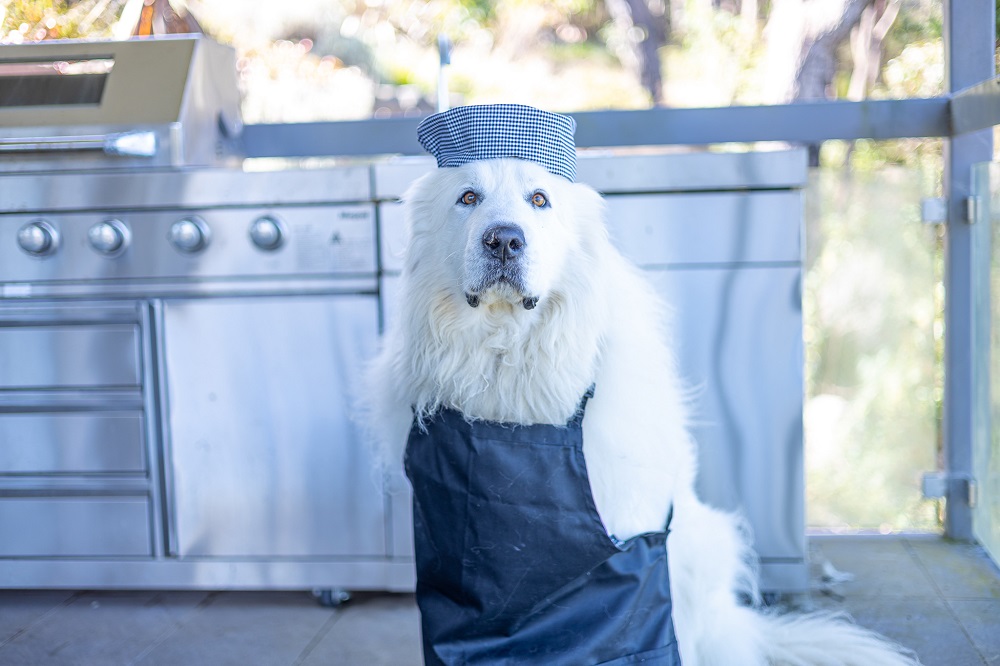When I started making dog coats out of recycled floof years ago, I never dreamt that one day my little business would end up publishing a cookbook for dogs. On the face of it, fashion and food seem worlds apart, with nary an opportunity for where the twain could meet. Yet one of the key reasons I embarked on both endeavours was to reduce waste – of floof and of food, two of my favourite things – and I’ve realised maybe the two aren’t so disconnected after all.
If the spare floof brushed off my back over the years (and the backs of all the other kind pups who have donated their spare hair to my business) had not been turned into clothing for other dogs, it would have gone into landfill. Instead, having done its job keeping me warm, it moves on to a new life, providing warmth and comfort to another dog. Rather than be discarded once it’s of no more use to me, we find a way for it to be useful to others, helping not only the environment but also our fellow dog.
The same is true for food! Food waste makes me so sad – “food” and “waste” are two words that should never be used in close proximity to one another! Eating is one of my favourite activities, and it pains me that there are many people in Australia and around the world who do not have the means to enjoy this activity like I do – especially when obscene amounts of perfectly good food are thrown away.
The same sentiment behind turning spare floof into clothing for new dogs is why we chose to support OzHarvest through the sale of my cookbook, How To Eat Like A Kobe: Recipes For Dogs. As Australia’s leading food rescue organisation, OzHarvest collects quality surplus food from a network of donors and delivers it at no cost to more than 1,800 charities that feed those in need. For every cookbook sold, we donate 10% of the sale price to OzHarvest to support their important work connecting surplus food with those in need.
As we navigate through financially challenging times for much of the world, it feels more important than ever to consider how a surplus of anything – floof, food or anything in between – can be used to help those who do not have enough. Waste is a luxury we collectively cannot afford.

